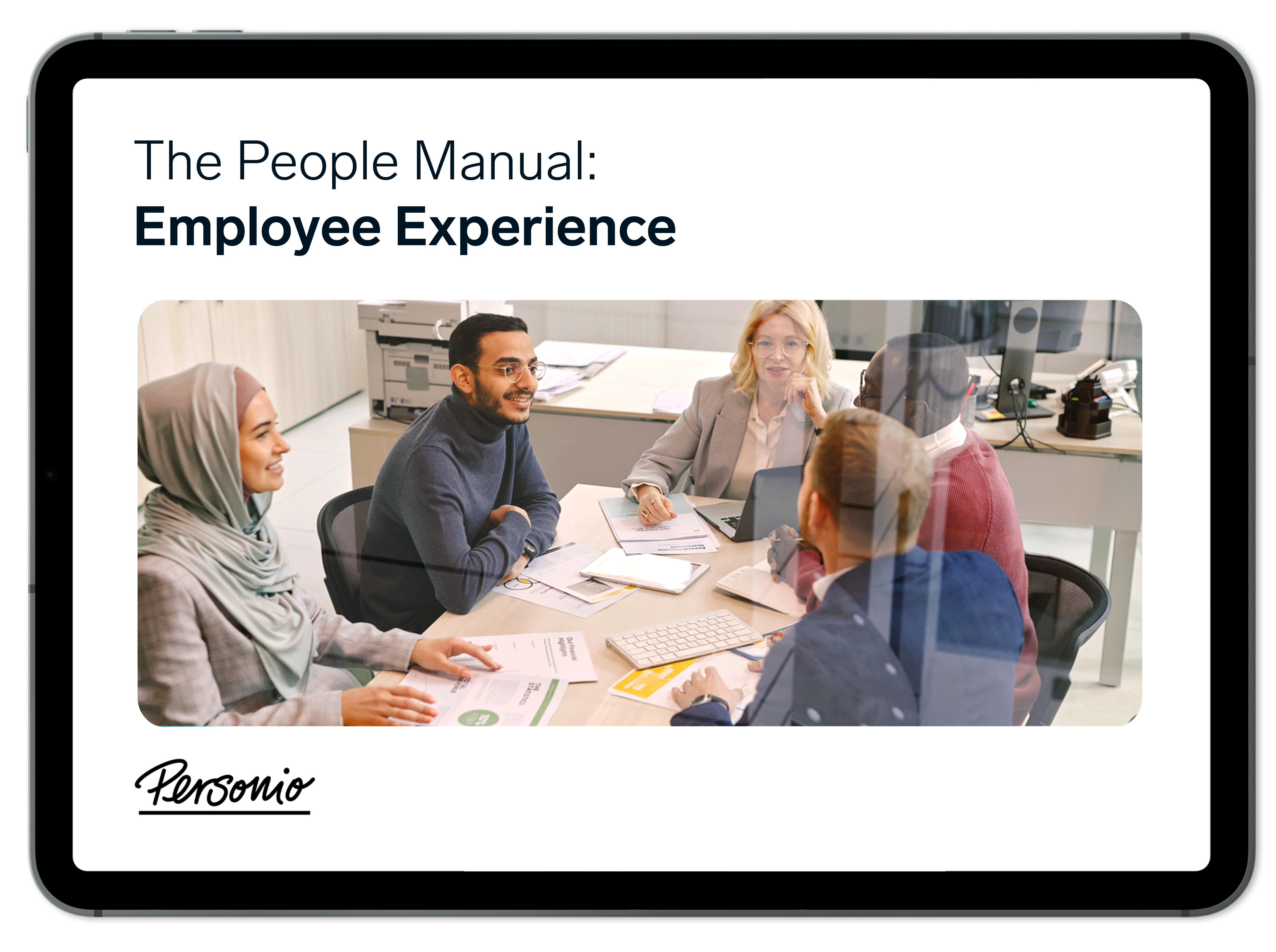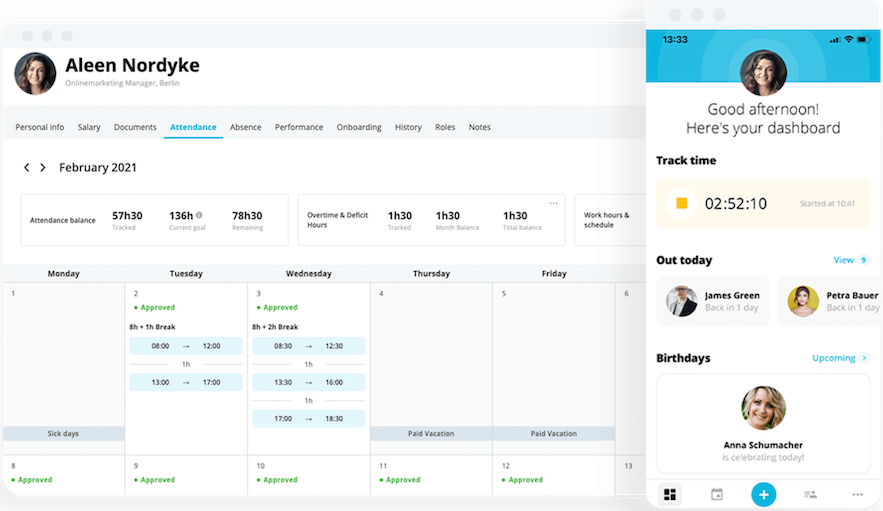What Is People Operations, Really?

In 2023, many leadership teams are leaning towards a new approach to workforce management that puts the focus on people, not processes. In this article, we’ll discuss what people operations is, the people involved, and how it could help your organisation.
Key facts:
People operations is a workforce strategy that puts an organisation’s people first.
People ops can have numerous benefits for an organisation, including improving morale and engagement and reducing turnover and absenteeism.
Focusing on looking after people and helping them to achieve their potential makes business sense in the context of the Great Resignation, which shows that many people will simply leave their jobs if their needs are not met.
What Is People Operations?
People operations (or people ops) is a business function that puts employees first. The term and the practice were coined in the mid-2000s by Google as an alternative to traditional HR, which tends to prioritise protecting the business rather than its people.
The overall aim of people operations is to improve the employee experience and support employees to do their best work. Ultimately, this leads to increased productivity and profitability for the business. People operations teams are concerned with developing and deploying various strategies to promote employee wellbeing, engagement and satisfaction. They approach business processes from a human perspective, instead of (solely) a business one.
When it’s done well, people operations can help improve everything from employee engagement to retention, resulting in a happier, healthier and more productive workforce — that’s likely to stick around for longer.
Is People Operations Part of HR?
Since people operations is a relatively new concept, it’s managed in different ways in different organisations. In some, it may sit under the wider HR umbrella, while others may have a whole team or department devoted to people ops. In smaller organisations, the HR team might take on some tasks and activities that are more aligned with people operations than with core HR processes.
Some of the differences between people operations and traditional HR are outlined in the table below.
Traditional HR | People Operations |
Focus on processes | Focus on people |
Responsible for executing decisions made outside of the department | Contributes to the wider strategic conversation |
Operates separately from other departments | Brings all departments together |
Reactive: responds to each new issue as it arises | Proactive: works to build new ways of working to improve operations |
Focus on logistics and compliance | Focus on maximising the value of each employee |
Works within the narrow constraints of HR practices | Employes a holistic approach to achieving business goals through people |
What Is a People Operations Strategy?
A people operations strategy is a plan for how your organisation will support, manage and utilise employees in order to better meet its goals. People operations teams often work cross-functionally with other teams. For example, key players in HR, IT, internal comms and leadership might be involved in the development of your people operations strategy.
Depending on your organisation and its goals, your people ops strategy might include:
Ways of helping employees to understand how their work fits into the organisation’s overall business goals and strategy
A strategy for creating and maintaining a positive work environment and improving the employee experience
Systems and tools for managing performance and helping employees to develop their skills
A plan for how you’ll adapt your people operations as your organisation’s needs change in the future
Half a decade of insights on employee experience

Our "People Manual" covers all things related to employee experience and developing initiatives that result in more engaged employees. Grab your free copy right now.
Download It TodayPeople Management Roles and Responsibilities
Because people operations is still a relatively new discipline, the exact roles involved are not always very clearly defined. It also depends on the size and complexity of the organisation: smaller businesses might only need a people operations manager, while larger ones might have a whole team dedicated to people operations.
Here are some of the specific roles that a people ops team might include:
People Operations Manager
The people operations manager is the leader of the people operations team, and is responsible for overseeing it. A people ops manager usually works with managers from other departments to improve people operations across the organisation.
People Operations Coordinator
The main purpose of a people operations coordinator is to ensure that the day-to-day operations of the people ops team run smoothly. This might include performing administrative tasks, collaborating on projects and working with the people operations manager to optimise processes. An organisation might have more than one people operations coordinator, depending on its headcount.
People Operations Analyst
A people operations analyst is responsible for analysing the systems and processes used by the people operations team and helping to optimise them. For example, they might oversee the use of the human resources information system (HRIS) that the company uses. They might also be involved with ensuring the people ops team is acting compliantly and legally.
How Can People Operations Benefit an Organisation?
People operations can have many benefits for both your employees and your organisation as a whole. Here are some of the things that adopting people operations practices could help you to achieve.
Improve Employee Engagement
Employee engagement in the workplace can result in lower turnover, increased productivity and decreased rates of absenteeism — all of which make it a key focus on people operations teams. People ops might include initiatives to provide more recognition to employees, seek and implement employee feedback and generally make sure employees feel valued.
Improve Retention and Lower Hiring Costs
Hiring, onboarding and training new employees is expensive. That’s why one of people operations’ biggest focuses is minimising this spending by working to retain the employees the organisation already has. This is tied in with improving employee engagement because employees who feel more engaged with their employer are more likely to stay with the organisation for longer.
Increase the Value of Each Employee
People operations can also help to increase the value that each employee brings to the organisation. They do this not only by ensuring that employees stick around for longer (thus creating a more knowledgeable, more experienced workforce) but also by leading employee learning and development programmes.
These help employees improve their skills and develop new ones. People operations teams might also work with employees to set goals and help them find opportunities to move forward in their careers.
Smooth Change Management Processes
People operations teams often play a key role in overseeing change management processes across the organisation, which can help these processes to go more smoothly. People operations come to the process from the perspective of helping the people affected to manage the change — not just an operational one.
For example, imagine you need to deploy a new piece of software for use across your organisation. You might need IT to manage the actual roll-out and provide training to employees. But your people operations team can help people to understand why the change is happening and how it brings the organisation closer to its goals — which can increase adoption.
Build a Positive Culture
According to a Deloitte study, 94% of executives and 88% of employees believe that a distinct workplace culture is important to business success — and a people operations team can help you to build one. They might do this by working with other departments to develop policies that promote diversity in the workplace and ensure that everyone feels safe. Ultimately, it’s about making sure the company’s culture is as healthy and positive as possible. And you can only do that by looking at it from a people-first perspective.
Is People Operations Becoming More Popular?
People operations is a relatively new business function, and many organisations are still relying exclusively on more old-fashioned, traditional HR processes rather than implementing more people-focused practices.
But there’s an argument that people operations will be the key to success in the future workplace, particularly where remote and hybrid organisations are concerned. People operations might be particularly important in these contexts because organisations can’t get away with simply offering surface-level perks without considering what their people really want.
Make Time for People Operations With Personio
Even if you work in a more traditional HR team, there’s no reason you can’t bring some elements of people operations into your organisation. In fact, this could be beneficial to the business as a whole, since every organisation needs a combination of people-first practices and core HR processes to operate.
The problem is, HR teams currently find that a large part of their day gets eaten up by manual, repetitive processes — which doesn't leave a lot of time for focusing on people.
The answer? Personio. Our all-in-one platform allows HR teams everywhere to streamline processes, build automated workflows and simplify admin. This gives them back the time they need to focus on building up the people that make their organisation run.
Want to find out more? Request a free demo to get started.
